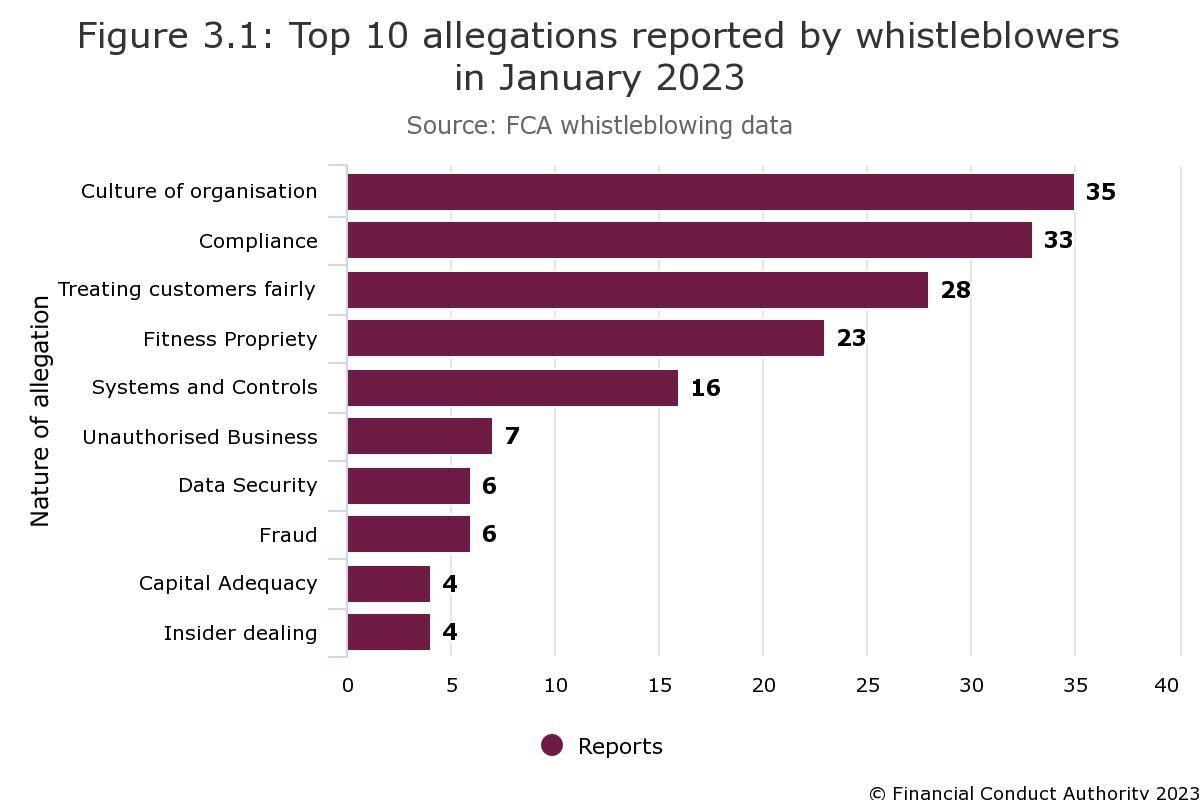
FCA data reveals rise in whistleblowers

‘Fitness and propriety’ and ‘compliance’ were the joint top reasons for whistleblowers to complain to the FCA in March.
In Q1 (Jan to March) the FCA received 280 new whistleblowing reports - just over 93 a month or 3 a day on average.
The quarterly figure was a small rise of four on the same period in 2022.
The details are revealed in the latest whistleblower figures for the first three months of the year released by the FCA.
In March the watchdog received 44 complaints each about ‘fitness and propriety’ and 'compliance'. The next highest reason for whistleblowers to act was ‘systems and controls’ with 39 reports in March.
In January the highest number of reports was about the ‘culture of an organisation’ with 35, followed by compliance with 33.
In February compliance and ‘culture of organisation’ were jointly the most-reported reasons with 38 each.
Typically, the reports the regulator receives contain allegations that fall under the following five overarching themes it said:
- Fitness and propriety
- Treating customers fairly
- FSMA
- Culture
- Compliance
The FCA quarterly report on whistleblowing said: “We assess every whistleblowing case we receive that falls within our remit, to inform our work and help us identify actual or potential harm. This could be harm to consumers, to markets, to the UK economy or to wider society.”
Underpinning the process is the importance of allowing whistleblowers to remain anonymous, the FCA said.
The FCA said: “Protecting the identities of the whistleblowers who contact us is vital. We understand individuals may be hesitant to share their personal information with us when making a disclosure.”
Despite that only a minority of whistleblowers ask for anonymity. In January 28 asked for anonymity compared to 60 who provided their identity.
In February the figures were 36 anonymous compared to 59 identity provided, while in March the figures were 41 compared to 56.
The FCA said: “It is helpful when whistleblowers provide us with an ongoing contact option such as a phone number and/or email address. This allows us to re-engage and develop on disclosures and ask further questions. We can also keep individuals informed on how we can protect their identity whilst we carry out our work.”
